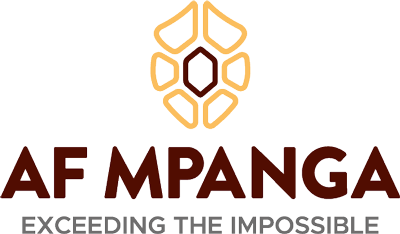Introduction
The banking industry in Uganda has undergone significant change over the past few years that has compelled financial institutions to adapt to the changing environment. Developments include regulatory reforms, increased uptake of digital banking, fintech innovations, reforms in the national payments system laws, enforcement of data protection and privacy laws, and increased diligence in implementation of the Anti-Money Laundering laws, among several others.
Financial Sector Regulatory Changes
Islamic banking
In a bid to promote greater financial inclusion in Uganda, the parliament amended the Financial Institutions Act to promote the growth of Islamic banking products in Uganda. Islamic banking was introduced by the Financial Institutions (Amendment) Act, 2016. It is rooted in morals, values, laws and principles in Shari’ah law. There are four key aspects of Islamic banking, namely: prohibition of the charging, payment and receipt of interest (Riba), prohibition of investment or financing of prohibited activities in Islam, including sports betting and gambling, among many others, mutuality of risk sharing – profit and loss, and prohibition of investment in uncertain and speculative transaction (Gharar).
The Financial Institutions (Amendment) Act, 2016 defines Islamic financial business to mean business which conforms to the Shari’ah law and includes:
- the business of receiving property into profit-sharing investment accounts or of managing such accounts;
- any other business of a financial institution which involves or is intended to involve the entry into one or more contracts under Shari’ah or otherwise carried out or purported to be carried out in accordance with the Shari’ah including equity or partnership financing, including Musharakah, Musharakah mutanaqisah and mudarabah, lease-based financing, including al-ijarah, alijarah muntahia bi al-tamlik and al-ijarah thumma al-bai, sale-based financing, including istisna`, bai` bithaman ajil, bai` salam, murabahah and musawamah, currency exchange contracts, and fee-based activity, including wakalah;
- the purchase of bills of exchange, certificates of Islamic deposit or other negotiable instruments;
- the acceptance or guarantee of any liability, obligation or duty of any person; and
- the business of providing finance by all means including through the acquisition, disposal or leasing of assets or through the provision of services which have similar economic effect and are economically equivalent to any other financial institution business.
Under the Financial Institutions (Amendment) Act, 2016, a person may apply to the Bank of Uganda for a licence to carry out Islamic banking business and an already-licensed financial institution carrying on business may apply to the Bank of Uganda to carry on Islamic financial business in addition to its existing licensed business.
The authorised activities under an Islamic banking licence include:
- mobilising funds in the form of deposits such as demand deposits, savings or other compatible forms based on contracts compatible with Shari’ah;
- investing in products based on contracts acceptable in Shari’ah;
- distributing financing of leasing moveable or immovable goods to customers based on the contract ijarah or lease purchase in the form of ijarah or other contract compatible with Shari’ah;
- granting loans or debt based on contracts compatible with Shari’ah;
- conducting custody for the interest of other parties, such as providing safety deposit boxes, based on contracts compatible with Shari’ah;
- transferring money, both for own interest and interest of the customers based on contracts compatible with Shari’ah;
- functioning as trustees based on contracts of wakalah; and
- providing letters of credit facilities and bank guarantees based on contracts compatible with Shari’ah.
The Financial Institutions (Amendment) Act 2016 also established the Central Shari’ah Advisory Council in the Bank of Uganda to advise the Bank of Uganda on matters of regulations and supervision of Islamic banking systems in Uganda and to approve any product to be offered by financial institutions conducting Islamic banking.
The Financial Institutions (Amendment) Act 2023, which was assented to by the President of Uganda in June 2023, was enacted to repeal the section that granted the Central Shari’ah Advisory Council the power to approve any Islamic banking product to be offered by a financial institution and allow the licensed financial institutions to offer Islamic banking products in Uganda without any approval from the Central Shari’ah Advisory Council. This Amendment set the stage for Islamic banking in Uganda and consequently, the first Islamic banking licence was granted by the Bank of Uganda to Salaam Bank Uganda, a subsidiary of a Djibouti-based bank in September 2023.
Islamic banking differs from conventional banking, which makes it a more sustainable form of banking and suitable for Uganda. In an economic environment with high interest rates, Islamic banking could be a potentially valuable source of funding for Ugandan entrepreneurs and small businesses that have been unable to access conventional funding. Islamic banking will also attract more clients and the other banks are set to diversify the portfolio starting off with debt-based products and then perhaps moving into profit and loss-sharing products as the market appreciates the unique concepts of Islamic banking.
Corporate governance
Corporate governance has become increasingly essential for financial institutions. The banking sector in Uganda has previously experienced bank failures primarily attributed to poor corporate governance. The corporate governance requirements under the Financial Institutions Act and corporate governance guidelines have helped avert these issues and the complex regulatory landscape of financial entities.
The Bank of Uganda issued the Consolidated Corporate Governance Guidelines 2022 to supervised financial institutions in Uganda, with the aim of ensuring good corporate governance in financial institutions. These guidelines introduced the requirement to have at least four least four independent non-executive directors and an in-house company secretary approved by the Bank of Uganda.
Previously, financial institutions were allowed to have external counsel as the company secretary, but with new guidelines, the role of company secretary can only be outsourced in exceptional circumstances with prior approval of the Bank of Uganda. The bank’s rationale in setting this requirement is that the role of company secretary is integral to management and requires in-depth knowledge of the SFI’s internal operations, dynamics and access to highly sensitive and confidential information.
These requirements had a compliance deadline of 31 December 2022. However, financial institutions requested an extension of time to comply, due to the lengthy vetting and recruiting process required in appointing four non-independent directors and an in-house company secretary. The Bank of Uganda granted the request and extended the deadline of compliance to 31 December 2023.
The Consolidated Corporate Guidelines 2022 also introduced obligations for financial institutions operating in Uganda under a group structure. The board of the parent company is required under these guidelines to have adequate oversight over its subsidiaries while considering the specific requirements in Uganda and to ensure that significant risks that might have an impact on the entity as a whole or each subsidiary are given due consideration at the parent/holding company level. It is the responsibility of the board of the parent/holding company to have a group organisational, operational, control and governance framework that defines the roles and responsibilities of the controlling entity and subsidiaries and ensure that adequate resources are in place to monitor the compliance of subsidiaries within the group with all applicable legal, regulatory and governance requirements, regardless of their geographic locations or regulatory boundaries. Emphasis is also placed on the board having adequate oversight to ensure that significant risks that might have an impact on the entity as a whole or each subsidiary are given due consideration at the parent/holding company level.
Minimum capital requirements
The minimum capital requirements for financial institutions were recently revised by the Financial Institutions (Revision of Minimum Capital Requirements) Instrument 2022. This instrument requires financial institutions to maintain a minimum paid-up capital of UGX120 billion (approximately USD31,684,464) and non-bank financial institutions to have a minimum paid-up capital of UGX20 billion (approximately USD5,300,000) invested in liquid assets in Uganda by 31 December 2022.
Additionally, financial institutions are required by the Financial Institutions (Revision of Minimum Capital Requirements) Instrument 2022 to have minimum paid-up capital of UGX150 billion (approximately USD39,605,580) and non-bank financial institutions to have a minimum paid-up capital of UGX25 billionm (approximately USD6,600,000) invested in liquid assets in Uganda by 30 June 2024.
The rationale for the revision of the minimum capital requirements was to adapt to the changes in assets and risk exposure in the banking sector and also place the country’s banking industry on par with the region. The implication of this requirement is that some banks may face challenges in meeting the new capital requirements. As a result, there are various opportunities for bank mergers and acquisitions.
Netting
There has been uncertainty on the efficacy of OTC derivatives and repo transactions entered with bank counterparties in Uganda under the 2002 ISDA Master Agreement with local banks. In an insolvency scenario, there were questions on whether close-out netting under ISDA/GMRA is enforceable in Uganda in light of the provisions of Sections 88(2)(b) and 96(i) and (ii) of the Financial Institutions Act (as amended) which prohibits the enforcement of any security over the assets of a financial institution placed in receivership by BOU. There was also concern on the enforceability of automatic early termination under the ISDA agreement for transactions with financial institutions which have been placed in management/receivership by BOU.
The parliament of Uganda passed the Financial Institutions (Preference and Appraised Book Value) Regulations 2023 to provide clarity on the uncertainty created by the Financial Institutions Act on netting in the event of insolvency.
The new regulations on preference and appraised book values provide clarity on the enforcement of close-out netting under International Swaps and Derivatives Association Master Agreement (ISDA), Global Master Repurchase Agreement (GMRA) and Global Master Securities Lending Agreement (GMSLA) contracts with financial institutions. The Regulations permit netting off, the delivery, payment, transfer, substitution or exchange of cash, margin, collateral, credit support or any other interests or assets from the financial institution where the financial institution is a party to a specified financial contract and is placed under management take-over or closed.
National payments
The National Payments Act was enacted in 2020 to regulate payment systems, provide for safety and efficiency of payment systems, functions of the Bank of Uganda in relation to payment systems, prescribe the rules governing the oversight payment instruments, protection of payment systems and regulate the issuance of electronic money, to provide for oversight of payment instruments and for other related matters. The Bank of Uganda is mandated to regulate, supervise and oversee the operations of payment systems, consider the applications for licences, monitor and oversee cross-border payments, provide efficient services to payment systems and settlement of monetary value of securities, and co-ordinate payment system activities with relevant stakeholders, amongst others.
The development of this regulatory framework has facilitated digital transformation and the development of electronic payment in Uganda. The Bank of Uganda reported that as at 30 June 2023, 26 institutions had been licensed as payment service providers and payment system operators, including two commercial banks.
The new National Payment Systems (Amendment) Regulations 2022 provide for the licensing fees and annual fees. The Bank of Uganda also developed the National E-Payments Strategy, which is aimed at promoting infrastructure development and interoperability through the national switch, fostering innovations, competition, consumer protection and digital financial literacy and strengthening collaborative stakeholder engagements, both in country and beyond borders.
The Bank of Uganda: strategic plan 2022–2027
Bank of Uganda launched a five-year strategic plan that determines the strategic initiatives of the Bank of Uganda to provide a framework for the development of Uganda’s financial markets that can efficiently and cost effectively mobilise and allocate resources. The mission of the Bank of Uganda is to promote price stability and a sound financial system in support of the socio-economic transformation in Uganda. The strategic objectives are:
- enhancing stakeholder confidence;
- enhancing price stability;
- enhancing financial system soundness and resilience;
- enhancing financial system development;
- enhancing financial performance;
- improving efficiency and reliability of bank processes;
- improving employee competence;
- improving organisational systems and infrastructure; and
- enhancing organisational culture.
The Strategic Plan focuses on environmental, social and governance sustainability (ESG), corporate governance, developing tools for the analysis of climate change and policy interactions, and a framework for the enhancement of financial sector resilience amidst disruptive technologies.
In a bid to promote price stability and a sound financial system in support of socio-economic transformation in Uganda, the Bank of Uganda has developed a regulatory framework for consumer protection for the national payments systems and launched the Sustainability Standards and Certification Initiative (SSCI) of the European Organization for Sustainable Development (EOSD), which is a framework aimed at engendering sustainability in the Bank of Uganda. This certification will provide a framework for financial institutions to assess and improve their sustainability performance and evaluate financial institutions’ ESG practices.
Waiver of early repayment charges on outstanding loans
The Uganda Bankers’ Association, the umbrella body for regulated financial institutions in Uganda, suspended the practice of early loan repayment fees (prepayment penalties) charged on outstanding loans. This decision is set to take effect on 1 December 2023. This is a relief to the borrowers and will promote loan buyouts.
Authors:


Brian Banana Baine



